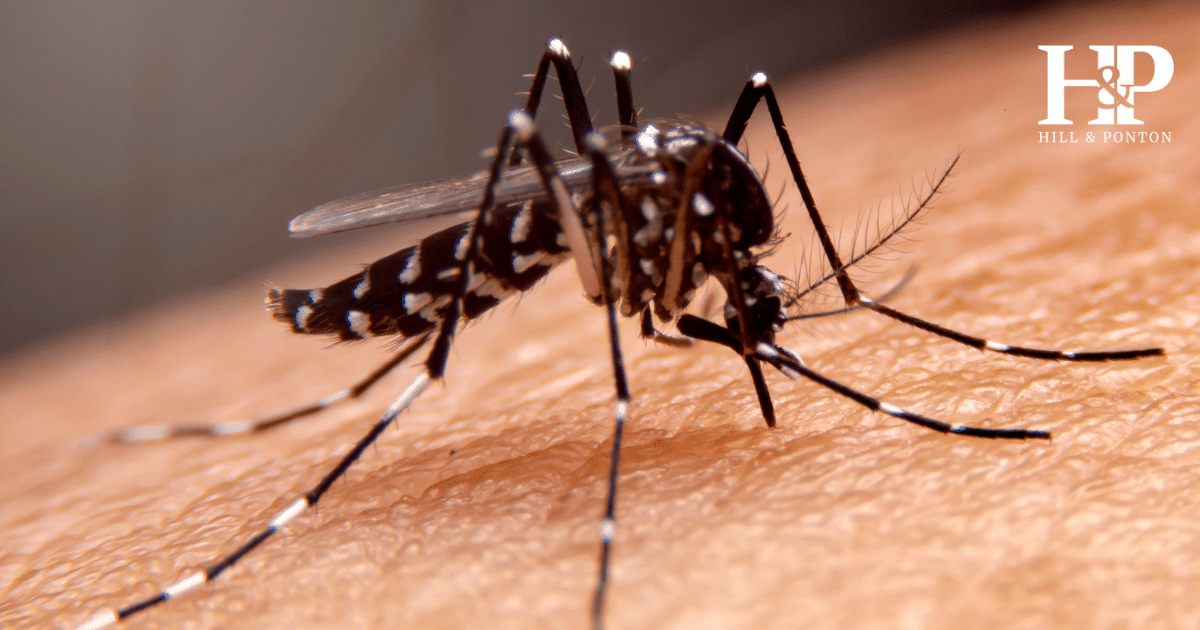It’s All in the Water: Infectious Diseases

We take water for granted. With most Americans growing up with clean water, we often don’t think twice about tap water or water for showers or even taking a drink from a mountain river after a long hike. But for our troops overseas, it’s a different story. Water and food safety are no joke. Immense precautions are taken to ensure that our service members overseas consume branded, bottled water—even to shower with!—and vacuum-sealed food. Back home, we think: obviously you have to be careful about drinking water, but how much harm can a shower do?
Turns out, more than you’d think.
Numerous studies have been undertaken to find out why our troops, specifically Gulf War veterans, have come home unwell, sick, and suffering from a new worry that maybe the vomiting and diarrhea they experienced overseas might not actually go away. Imagine that. Imagine hearing the doctors tell you that they can’t figure out why you aren’t getting better, and why the medication isn’t working. This is what our service members are dealing with now. And here’s why.
Disease rates in Southwest Asia
Afghanistan, Pakistan, Iran, and Iraq have some of the highest rates of disease in the world. This is largely due to unsanitary living conditions, limited access to healthcare, and the prevalence of infectious organisms (parasites) that run rampant in the water. Recent studies have identified numerous parasites that live in the marine life of freshwater rivers, such as the Tigris. Swimming poses the highest risk of infection, but this would extend to using this water to wash. Researchers are attempting to aid fish farmers in those areas prevent infestation of parasites in farmed fish. But it doesn’t stop there. Poor sanitation habits affect the underground wells and mountain rivers, via contaminating the water by septic tanks without solid bottoms, which are frequently very close to drinking water sources. Even bottled water is not always safe. It is a well-known practice of locals filling plastic bottles with water from contaminated wells and selling this water at the markets. And then there are the locals themselves, especially in the rural populations. Again, poor sanitation habits lend to infectious diseases spreading easily with a handshake or other physical contact. While our service members are heavily vaccinated, there are still pathogenic organisms against which foreigners, such as our Gulf War veterans, have no immunity.
Presumptive diseases for Gulf War veterans in Southwest Asia
The VA has recognized the enormity of health risks involved with service in Southwest Asia and has identified a list of infectious diseases that are presumed to be service-connected for Gulf War veterans who served in those countries. They are as follows:
- Brucellosis: A zoonotic bacterial disease that spreads from animals to humans via unpasteurized milk, cheese, and other dairy products. Symptoms include profuse sweating and joint and muscle pain. The illness may be chronic and persist for years.
- Campylobacter jejuni: Food poisoning due to consumption of raw/undercooked poultry, unpasteurized milk, and contaminated water. Symptoms include abdominal pain, diarrhea, and fever.
- Coxiella burnetti (Q fever): A bacterial disease with symptoms such as fever, severe headache, and gastrointestinal

The VA has recognized the enormity of health risks involved with service in Southwest Asia and has identified a list of infectious diseases that are presumed to be service-connected for members who served in those countries. problems such as nausea and diarrhea. This disease naturally infects some animals, including goats, sheep, and cattle.
- Malaria: An infectious disease caused by a parasite transmitted by mosquitoes. Symptoms include chills, fever, and sweats.
- Mycobacterium tuberculosis: A disease that primarily affects the lungs, although it can attack other parts of the body. It spreads much like a cold or the flu — through the expelled airborne droplets from a person with infectious TB.
- Nontyphoid salmonella: leading cause of bacterial diarrhea worldwide. Foods that are most likely to contain Salmonella include raw or undercooked eggs, raw milk, contaminated water, and raw or undercooked meats, but they can also contaminate fruits and vegetables. Symptoms include nausea, vomiting, and diarrhea.
- Shigella: An infectious disease closely related to E. coli, causing diarrhea, fever, and stomach cramps starting a day or two after exposure to the bacteria; usually resolves in 5 to 7 days. Contracted via contaminated food and water.
- Visceral leishmaniasis: Also known as black fever and Dumdum fever, spread by sandfly bites. It is characterized by symptoms such as fever, weight loss, enlargement of the spleen and liver, and anemia. The condition may be fatal if left untreated.
- West Nile virus: Spread by mosquitoes, and characterized by symptoms such as fever, headache, muscle pain or weakness, nausea, and vomiting. Symptoms may range from mild to severe.
In order to qualify for the presumption, veterans must demonstrate that the above conditions were at least 10% disabling within 1 year from the date of military separation.
What if my condition is not on that list?
It is important to note that these conditions do not limit service connection for other conditions. These are just the conditions that the VA presumes service connection for Gulf War veterans (meaning that the VA will not require a medical nexus between the condition and military service in order to award disability compensation). Veterans can pursue service connection for other conditions on a direct basis. This means that if you have a condition that you believe was caused by your military service, you can still obtain service connection for that condition, but you will need a medical nexus from a qualified medical professional. Veterans can also obtain service connection for undiagnosed illnesses and medically unexplained chronic multisymptom illness under the Gulf War presumption.
So what can you do?
- Be aware. Even if you don’t have one of the presumptive illnesses mentioned above, that doesn’t mean you did not contract an illness while you were overseas. That nausea and diarrhea that won’t go away? Don’t wait – get it checked out. And if you think it may be related to your service, file a claim.
- Get help. If you have a claim for service connection for a condition that is related to your service in the Gulf War, good advocacy is key. If your condition is not on their neat and tidy list, the VA will try to deny you. Advocates will be able to direct you to the right evidence and legal argument that you need to win your case.


